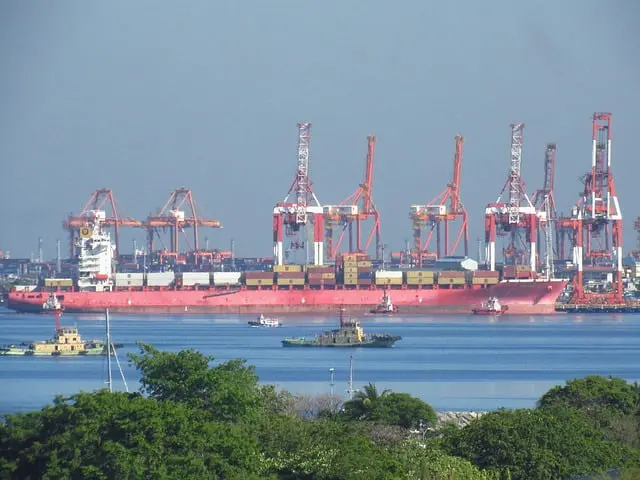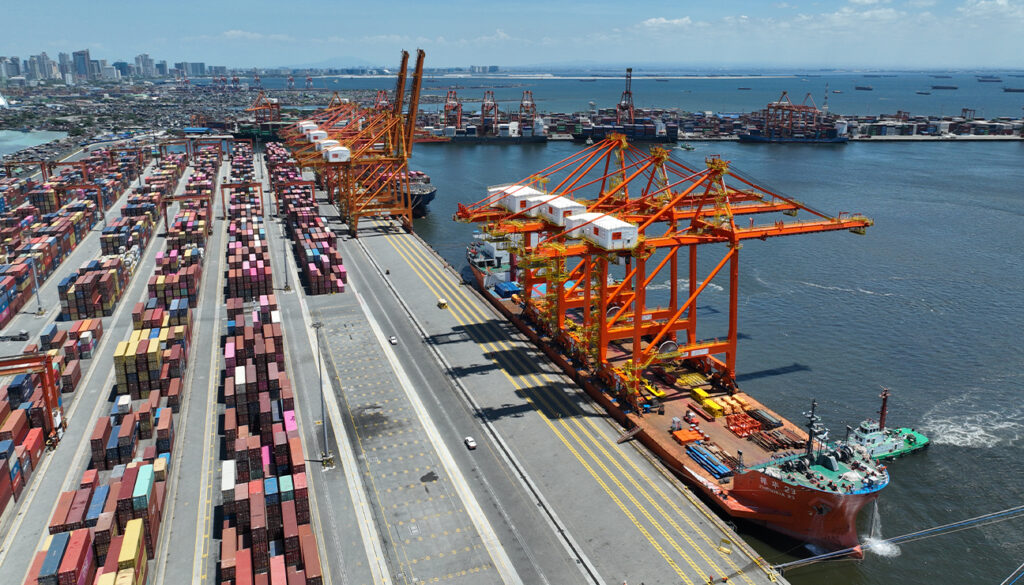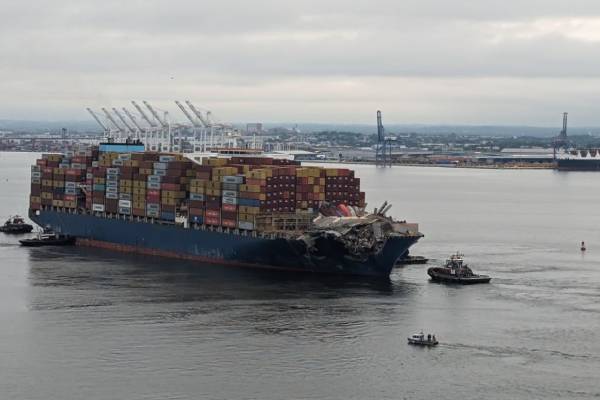The Bureau of Customs has drafted rules on charges imposed by foreign shipping lines
The proposed customs administrative order contains rules to determine cost of transport, loading, unloading, and handling charges levied by carriers
BOC is asking stakeholders to submit their comments on the draft CAO until November 12, the same day for the proposal’s virtual public consultation
The draft CAO will require shipping lines, including shipping agents and general agents, to refund container deposits within 15 days following receipt of empty containers
An electronic system will be developed to track and trace all movement of containers in the country, whether laden or empty
The Bureau of Customs (BOC) has drafted rules on charges imposed by foreign shipping lines.
The proposed customs administrative order (CAO) contains rules to determine cost of transport, loading, unloading, and handling charges levied by carriers.
The order will implement Section 204 (Promulgation of Rules and Regulations) in relation to Section 1226 (Supervision and Regulation of Third Parties), and Sections 700-707 (Basis of Valuation) and other relevant sections of Republic Act (RA) No. 10863, also known as the Customs Modernization and Tariff Act (CMTA).
BOC is giving stakeholders until November 12 to submit their comments on the draft CAO. A virtual public consultation will also be held on November 12.
As early as 2018, the BOC had said it will draft a CAO on the registration and regulation of international shipping lines calling the Philippines.
In response, the Association of International Shipping Lines—whose members include carriers calling Philippine ports—had pointed out that while BOC may register and regulate foreign shipping lines, the agency cannot involve itself in commercial matters such as carriers’ rates and charges.
Stakeholders have for years raised the issue of alleged exorbitant fees—particularly destination charges—imposed by foreign shipping lines, but it has never been clear which government agency exercised jurisdiction over the lines or if ever there was any agency that had jurisdiction over them to begin with. This, until BOC officials pointed out the CMTA provides the bureau authority to register and regulate shipping lines as third parties.
BOC under the CMTA has the authority to govern and regulate the conduct of third parties—including shipping lines, shipping agents, and warehouse operators—that deal with the customs bureau in relation to the import, export, movement, storage and clearance of goods for and on behalf of another person.
Among the draft CAO’s objectives are to determine the cost of transport, loading, unloading, and handling charges, as adjustments to the price actually paid or payable for the imported goods, and to recognize the rules on International Commercial Terms (INCOTERMS) pursuant to Section 415 (Mode of Payment and Terms of Trade) of the CMTA.
It also aims to ensure transparency in the collection of shipping charges.
The CAO will cover international shipping lines that call at Philippine ports to load and unload foreign cargoes, or their agents that act on behalf of international shipping lines in the handling of laden and empty containers to and from Philippine ports.
It also covers all container yard or depot operators.
Under the draft CAO, the regulatory authority of BOC covers the formulation and adoption of policies regarding charges that may be imposed by international carriers, and clearly define the cost of transport whether forming part of the cost of the goods or destination charge.
It added that the cost of transport of the imported goods to the port of entry in the Philippines, loading, unloading, handling charges associated with the transport of the imported goods from the country of exportation to the port of entry in the Philippines “shall be added to the price actually paid or payable if such values have not been included in the price actually paid or payable.”
All additions to the price actually paid or payable should be made only on the basis of objective and quantifiable data and where such data do not exist with regard to the additions, the transaction value cannot be determined under the provisions of Method 1 valuation, also known as the transaction value method.
The cost of transportation includes those costs for physically moving the goods from the port of exportation to the port of entry in the Philippines. Under the draft CAO, this will be determined as follows:
- Cost of transport for full container load (FCL) and less-than-container load (LCL) shipments – The cost of transport of the imported goods to the port of entry in the Philippines should be the total of the basic ocean freight plus accessorial charges. This cost could include charges such as trucking, inland freight, rail freight, and barge or lighterage, depending on the terms of shipment.
- Loading, unloading, handling charge – Charges for loading, unloading and handling could be attributed to a number of different activities associated with the transport of the imported goods from the country of exportation to the port of entry in the Philippines. These charges may include, among others, terminal handling charges (THC) at the port of origin or transshipment port; or documentation or bill of lading (B/L) fee.
- Transport cost for bulk and break-bulk shipments – In case of bulk and break-bulk shipments, the certified copy of Charter Party document or Freight Contract for Ex Works (EXW), Free Alongside Ship (FAS) and Free on Board (FOB) should be presented to show the actual freight charge. Demurrage charges incurred at the port of loading shall form part of the transport cost.
Accessorial charges include surcharges or factors such as, but not limited to the following:
- Currency Adjustment Factor (CAF)
- Yen Appreciation Surcharge (YAS)
- Bunker Adjustment Factor (BAF)
- Fuel Adjustment Factor (FAF)
- Carrier’s Security Charge (CSC)
- Container Imbalance Charge (CIC)
- Port Security Surcharge (PSC)
- Cost Recovery Charge
Accessorial charges shall form part of the cost of transport if the charges are incurred at the port of origin, or if the charges are incurred during transport of the goods from port of loading to the port of entry or port of discharge.
Charges for services made by shipping lines or international freight forwarders from the time the carrying vessel enters the port of discharge shall be considered as post-importation charges and should be excluded as adjustments to the price actually paid or payable.
Post-importation charges may include the following:
- Transfer charge for LCL shipments
- Demurrage charge
- Detention charge
- Container cleaning charge
- Container insurance
To ensure transparency, shipping lines or their agents will be required to publish charges in a newspaper of general circulation. The shipping lines or their agents should likewise submit to BOC a copy of the regular shipping charges and fees for the issuance of appropriate customs memorandum circular (CMC).
Any increase in the rate shall be effective only after 30 days from circularization by BOC.
All international shipping lines, including shipping agents and general agents, will also be required to refund the container deposits within a period of 15 days following the receipt of the empty containers.
The container deposit will no longer be imposed by international shipping lines when a company guarantee has been executed by the importers under oath and properly covered by insurance, the draft CAO added.
Shipping lines should also not impose detention charges in the return of empty containers when the delay is caused by them such as, among others, when carriers or freight forwarders cannot provide adequate container yard space for returned empty containers. Moreover, carriers should ensure that the delivery order always indicates the container depot where the empty container must be returned.
Any demurrage fee or detention charge will not constitute a direct or indirect lien on container deposits or on other cargoes or shipments covered by a separate transaction of the same shipper or consignee.
The cost of recovery of all international shipping line for detention and demurrage charges will be submitted to BOC for the issuance of appropriate circular.
BOC will also forward a standard tariff schedule that will serve as uniform basis for container cleaning charges.
Claims for repairs of damaged containers, meanwhile, will require a written notice to the consignee or an importer within 24 hours from discovery.
The draft CAO also requires that all empty container yards owned, leased, or allowed to be used as temporary storage of empty containers to be accredited by BOC as a customs facility and warehouse (CFW) pursuant to CAO No. 09-2019 (guidelines on the establishment, operation, supervision, and control of CFWs).
BOC, in coordination with the shipping lines, will also review and revise existing rules on the issuance of equipment interchange report (EIR), specifically the mechanics to properly track and monitor movement or repositioning of containers.
To ensure transparency, an electronic system will be developed to track and trace all movement of containers in the country, whether laden or empty.
The proposed CAO will prohibit international carriers or their agents from imposing an indirect lien and hold the release of the shipment of a consignee for the reason that the consignee has an outstanding demurrage and detention collectibles corresponding to a previous and different transaction with the carrier. It will also prohibit withholding and holding the refund of container deposits posted by the consignee for returned empty containers if any, beyond the 15-day period and for the reason that the consignee has outstanding demurrage and detention collectibles corresponding to a previous and different transaction with the shipping line.
Violations of the proposed CAO include failure of the container yard to be accredited as a CFW, and carriers charging higher rates without a CMC.
Any provision of the proposed CAO that require mandatory performance by the shipping line or its agent will result to the following penalties:
- First offense – P100,000
- Second offense – P200,000
- Third offense – P300,000
By: Roumina Pablo | 8Nov2024
Source: https://portcalls.com/boc-drafts-rules-on-foreign-shipping-line-charges/





